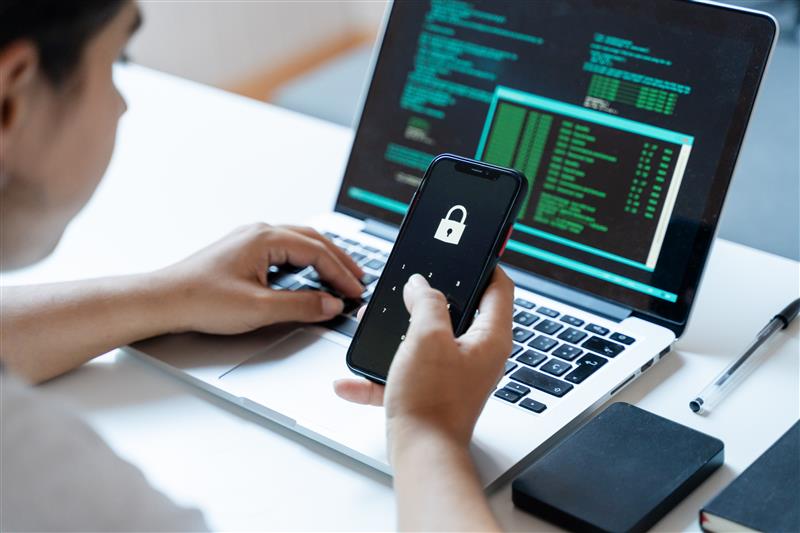Advice for College Students on Preventing Identity Theft

Identity theft at college
It was a hot August morning, but Melissa didn’t care about the heat. It was finally here—Melissa’s first day of sophomore year at college! She had been getting ready for this for months. She had enrolled in classes; she’d bought all the textbooks ahead of time. She had even color-coordinated her dorm with help from her new roommate. She had been unable to request her best friend as her roommate, so the university had automatically paired her with a stranger.
Melissa hoped her roommate shared her interests: no loud parties, lots of studying. That afternoon after hanging out with friends, Melissa came back to the dorm. She was disappointed to discover that her roommate did indeed prefer loud parties. There were at least seven strangers in her dorm room, some of them even sitting on her own bed. Eventually, the strangers filtered out, leaving her room a bit messier but a lot quieter.
It wasn’t until dinnertime, when Melissa needed her student ID to get a meal, that she realized her wallet was missing. She dug frantically through her backpack, her purse, her desk drawers, her bedsheets—the wallet was nowhere to be found. Her student ID, credit card and driver’s license were in that wallet. Melissa couldn’t remember if her Social Security card was also in there or not—she hoped it wasn’t.
One of her roommate’s friends must have stolen the wallet while they were spending time in her room earlier. Angry and worried, Melissa called her dad to ask what she should do. His first response is sobering: Your identity could be stolen. You need to act now.
Identity theft can happen to any student
Does this sound like it could happen to you? The story above might be fictional, but the possibility of having your personal information stolen is all too real. When you are heading to college, you may think about campus safety, job security, academic success and social life. The last thing on your mind is probably whether your identity will be stolen. However, identity theft is one of the fastest-growing crimes in the United States, and it doesn’t bypass college students.
In fact, college students are a special target for identity thieves. Why? Well, most college students do not have much credit or financial history, meaning that their financial accounts are easy to pilfer without anyone noticing. Another reason why college students are at risk of identity theft is that they simply aren’t paying attention. Who has time to balance their bank accounts or check their credit report when they are busy with school and friends?
Students’ social media accounts are another easy target for thieves. College-aged young adults share everything on social media, including sensitive information like their date of birth and physical address, or even photos of student IDs and driver’s licenses—all of which can be used to steal their identity.
The dangers of college identity theft
There are several ways an identity thief can gain access to a college student’s identity: “Shoulder surfing” is when a criminal watches over a student’s shoulder as they enter their PIN at the ATM, log into the school computer or check bank accounts on the web. Many college students receive pre-approved credit offers in the mail with some of their personal information automatically filled in for them. If they aren’t interested, they throw these documents in the trash, making easy pickings for a dumpster diver looking for a new identity to steal.
Due to the fast pace of college life, it is easy to lose a personal laptop or hard drive with sensitive information on it. Criminals can hack into these devices and gain access to all the information stored on them. Some criminals go the old-fashioned route and steal a student’s purse, backpack or wallet, just like Melissa experienced. A student’s personal belongings are almost guaranteed to contain personally identifiable information.
Once criminals have your information, they can do whatever they want with it. Some put it up for sale on the dark web. Others keep it for themselves, posing as you to withdraw money from your bank or to make purchases in your name. It can take months for you or your bank to notice anything out of the ordinary, especially if the criminals use your money in small increments to avoid detection.
Take steps to secure your personal information
Melissa’s dad told her some immediate steps to take to help avoid identity theft. These tips are helpful for you too: Always shred documents containing your personal information. Don’t let mail pile up on your desk where anybody can grab it. Better yet, have your mail sent to your parent's home or a post office box—not an on-campus facility where it is more accessible to thieves. Make sure you log out of personal accounts and don’t store all your information in one place, like your hard drive.
Don’t carry your driver’s license and Social Security card together in your wallet. Avoid conducting personal or financial transactions using public Wi-Fi, as hackers could be watching for an opportunity to access someone’s information on that network. Be careful with what you share on social media. The Likes aren’t worth the risk.
Get help with IDShield
Melissa’s dad also told her about an identity protection service called IDShield. Once Melissa signs up as an IDShield Member, she can get help from IDShield’s Licensed Private Investigators, who will do whatever it takes for as long as it takes to restore her identity to its pre-theft status. IDShield will also scan the deepest corners of the dark web to ensure that her information isn’t for sale. She can find out her credit score and receive credit reports from all three major bureaus. IDShield monitors for different sources of fraud and identity theft, including social media, financial institutions and court records.
Melissa can now enjoy her college years, while she rests assured that her identity is in good hands. Do you want to feel safe in every way while you’re at college? Find out more about IDShield plans so you can have fun at college without worrying about your identity.
*Disclaimer: The examples above are for illustration purposes only and are not actual accounts.
IDShield is a product of Pre-Paid Legal Services, Inc. d/b/a LegalShield (“LegalShield”). LegalShield provides access to identity theft protection and restoration services. For complete terms, coverage and conditions, please see www.idshield.com. All Licensed Private Investigators are licensed in the state of Oklahoma.



